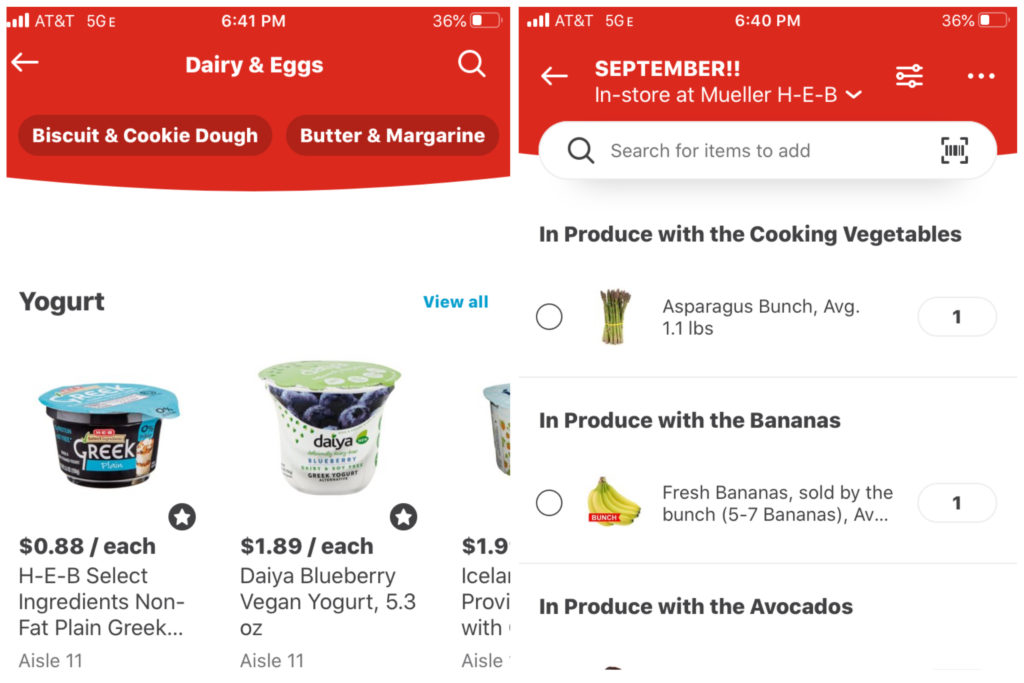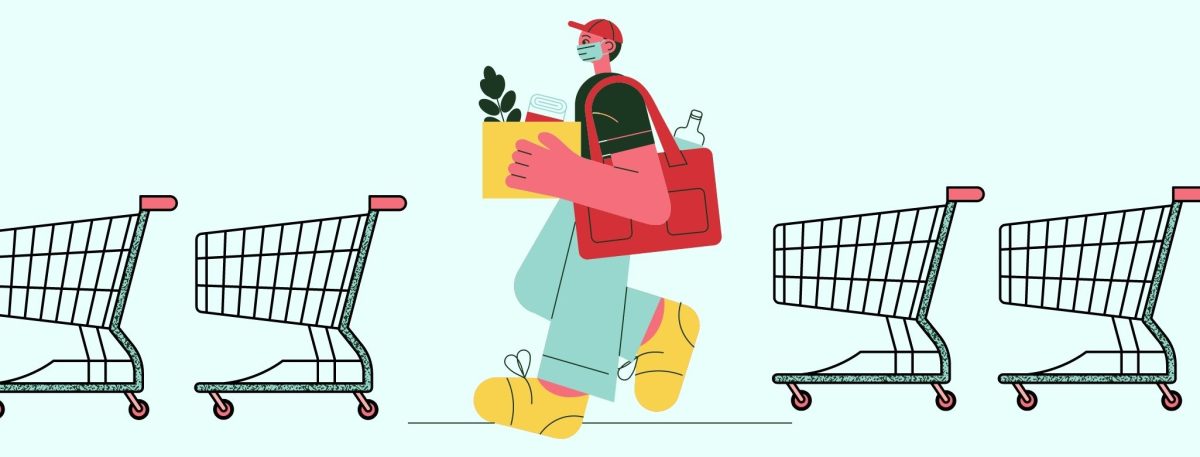Grocery shopping is a common dread for many college students. A trip to the grocery store can be overwhelming and intimidating, especially if it is a store that is unfamiliar. Not only is it a hassle to find the time to physically go to the store, but it can also be expensive. After a few laps up and down the aisles, somehow $80 has quickly disappeared, and on what? Sandwich meat, a box of cereal and eggs turns out to be the quickest money ever spent. Although it may be dreaded, grocery shopping cannot be avoided. Here are some tips to make this weekly chore more efficient and cost-effective.
- Planning is the key to success at the grocery store.
Yes, planning takes time and effort, but in order to avoid overspending, food waste and an unsatisfied stomach, a plan needs to be set. Take 10 to 15 minutes before making a grocery trip to plan the purchases. Think about what meals will be made that week and if any extra ingredients are needed. Go through the fridge and pantry and check for items that have already been purchased. The easiest way to save money while shopping is to use what is already available.
- Schedule your trip to the store into your weekly routine.
Block off time using the planner format that you are most comfortable with. Knowing the trip is already scheduled will make the experience at the grocery store less stressful and rushed.
- Download a grocery app.
Almost every grocery store has an app that allows for online shopping, member discounts and other resources. The HEB app has several tools to make shopping easier. Users are able to scroll through HEB’s inventory and create a shopping list that is automatically organized based on the item’s location in the store. The app also showcases weekly coupons that can be stored on the user’s account and scanned during check-out.

- If curbside delivery is available, take advantage of doing the absolute least!
Ordering your groceries online through curbside is the best way to keep the cart total low. While perusing the aisles in person, temptation from the infinite delicious items on the shelves is unavoidable. Ordering online with a running cart total helps prevent unnecessary and expensive snack purchases. Always check for added fees with curbside and save money by selecting time slots or days that are free.
- Do not forget to check expiration dates on items.
Search through the shelves to find the date that is furthest away from the current day. This will decrease food waste and decrease the number of shopping trips.
- When purchasing produce pay attention to the prices.
At most stores, fruits and vegetables are priced by the pound. Do not get trapped into paying $9 for a bag of grapes (This is a mistake I made last week. Do not be me.)
- Purchasing spices is an easy and cheap way to take meals to the next level.
Spices can completely change the boring chicken that has been a recurring meal for the past week into a lemon-pepper-garlic flavorful meal. Start with staple spices like Italian seasoning, garlic salt, fajita seasoning and explore from there.
- To save money, buy store brand items. There is typically no outstanding difference in taste or quality, but the price drop is significant.
- Do not shop hungry.
Shopping while hungry will only lead to impulse purchases and overbuying that will hurt your college budget.
The grocery store does not have to be a fearful place. Approach the shopping trip with an open mind and a simple plan. When in doubt, do not underestimate the motivation found at the sight of an empty fridge. Grocery shopping is unavoidable, so you might as well do it right.






































